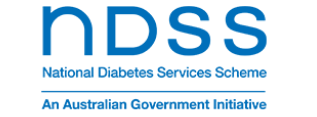Around 11,000 school-aged people live with type 1 diabetes in Australia
Type 1 diabetes is an auto-immune condition and the cause is not fully understood, nor is it preventable or curable.
There is nothing that a person has done to cause the condition. Type 1 diabetes develops when the pancreas stops producing insulin. Insulin is the hormone which transports glucose from the blood stream to the cells around the body where it is used for energy.
Without insulin, glucose builds up in the blood stream and can make a person extremely unwell. If someone is diagnosed with type 1 diabetes they must give insulin and check blood glucose levels for life. Insulin is a lifesaving medication.
Type 1 diabetes usually develops before 40 years of age. It is the most common type of diabetes found in children and young people. It is one of the main types of diabetes.
The other type of diabetes is type 2 diabetes. Type 1 and type 2 diabetes are not the same, however both are serious and complex conditions.
Managing type 1 diabetes at school
Type 1 diabetes is a chronic condition that affects how the body regulates blood glucose. It is a condition that needs decisions and actions to be made every day to keep glucose levels within a certain range.
Every day with type 1 diabetes is different. Every day, a student will need to consider how insulin, food and exercise will affect their glucose levels. It can be challenging to make so many daily decisions and act on them. Type 1 diabetes can affect a student’s health, how they feel and their ability to cope at school. Students and their families do their best to maintain glucose levels within a certain range by taking insulin every day. But this can be difficult, as food, physical activity, stress and illness all affect glucose levels.
 |
 |
 |
 |
 |
 |
 |
Supporting a student with type 1 diabetes
Schools have a responsibility to provide a supportive environment for all students with a medical condition including students with type 1 diabetes.
School staff may be required to provide additional support to help students manage their type 1 diabetes and participate in school life like their peers. These supportive actions are called reasonable adjustments.
Schools and school staff might be required to support a student in a range of ways including:
- working with parent and carers to establish communication processes regarding a student’s day-to-day type 1 diabetes care (for example via a diary, phone calls or regular meetings);
- following a student’s diabetes management and action plan in relation to treating low and high glucose levels;
- providing a student with access to a blood glucose monitor, insulin and hypo treatment foods;
- ensuring a student has access to water (for drinking or to wash hands);
- allowing a student to eat at additional times in class or during physical activity;
- allowing extra bathroom access;
- making special considerations during exams and tests;
- providing some necessary supervision (e.g. insulin administration, blood glucose levels and pump management) if required;
- providing consideration for privacy when checking blood glucose levels and/or injecting insulin, if requested.
Young students may require additional support and guidance in managing their type 1 diabetes needs.
A student’s diabetes management plan is an essential document that that will guide how schools can support students to learn and participate fully in their school experience. The diabetes management plan will usually be developed by the student’s diabetes treating team in collaboration with the student and family.
If you’re interested in supporting a student with type 1 diabetes further, Diabetes in Schools has a training program designed to support schools and staff across multiple areas and situations.
Frequently asked questions about type 1 diabetes
-
What is type 1 diabetes?
Type 1 diabetes affects about 10–15% of all people living with diabetes.
Type 1 diabetes is a condition where there is too much glucose (sugar) in the bloodstream. Glucose is an important source of energy for your body. It comes from carbohydrate foods that you eat, such as bread, pasta, rice, cereals, fruits, starchy vegetables, milk and yoghurt. Your body breaks down carbohydrates into glucose, which then enters your bloodstream.
Insulin is made in your body by the pancreas. Insulin is needed to allow glucose from the bloodstream to enter the body cells to be used for energy.
Type 1 diabetes occurs when the pancreas can’t produce insulin. This happens usually because the body’s immune system destroys the cells that make the insulin (beta cells).
-
How is type 1 diabetes managed?
Type 1 diabetes is managed by replacing the insulin the body can no longer make. Insulin is given by injection or by using an insulin pump. A doctor will work with a person who has type 1 diabetes to decide on the type of insulin is needed, and will recommend how often insulin is needed. As well as taking insulin, a person will need to check their blood glucose levels regularly, follow a healthy eating plan, and stay physically active.
Managing type 1 diabetes on a day-to-day basis is important for keeping blood glucose levels in the target range. This helps a person stay well in the short term and reduces the risk of long-term complications, such as damage to the eyes, kidneys, nerves and blood vessels.
-
Why does type 1 diabetes develop?
The exact cause of type 1 diabetes is unknown. We do know that some people carry genes that make them more likely to develop type 1 diabetes. Type 1 diabetes occurs in these people when something triggers the immune system to start destroying the beta cells in the pancreas that produce insulin.
Type 1 diabetes is usually diagnosed in younger people, but it can be diagnosed at any age.
-
Can type 1 diabetes be prevented or cured?
Nothing can be done to prevent or cure type 1 diabetes, but researchers are currently working on this. If type 1 diabetes is managed well, you can continue to lead a healthy life.
-
What are the symptoms of undiagnosed type 1 diabetes?
The most common symptoms of undiagnosed type 1 diabetes include:
- being thirsty and drinking much more than usual;
- going to the toilet (to pass urine) more often;
- feeling tired and low on energy;
- unexplained weight loss;
- feeling tired and low on energy;
- genital thrush;
- mood changes.
The symptoms of type 1 diabetes can develop quickly and need immediate medical attention. If type 1 diabetes is left untreated, diabetic ketoacidosis (DKA) will develop.
Diabetic ketoacidosis occurs when the body can’t use glucose for energy, and makes chemicals, called ‘ketones’ to use for energy instead. Ketones cause the blood to become too acidic. High glucose levels result in a loss of body salts and fluids. This is life-threatening and requires urgent hospital treatment.
-
What is the difference between type 1 and type 2 diabetes?
Type 1 diabetes can occur at any age, but is most commonly diagnosed from infancy to the late 30s. With this type of diabetes, a person’s pancreas produces no insulin. It occurs when the body’s immune system attacks and destroys the insulin-producing cells in the pancreas.
The only treatment for type 1 diabetes is insulin, which is usually injected or infused via a pump.Type 2 diabetes is by far the most common type of diabetes – in Australia over 90 per cent of people with diabetes have type 2 diabetes. Type 2 diabetes usually affects people aged over 40, however it is becoming more common among younger people. The symptoms of type 2 diabetes are not always obvious and, unlike with type 1 diabetes, they can take a long time to develop.
People with type 2 diabetes either don’t make enough insulin or don’t make insulin that the body can use properly. The cells in the body become resistant to insulin, making a greater amount of insulin necessary to keep blood glucose levels within a normal range. Eventually, the pancreas can wear out from producing extra insulin, and it may start making less and less.
Type 2 diabetes can usually be managed through diet, exercise, and self-monitoring blood glucose, at least in the first few years following diagnosis. However, type 2 diabetes is a progressive condition, and most people will need to take tablets and/or inject insulin after living with it for five to 10 years.
 |
 |
 |
 |
 |
 |
 |
OUR PARTNERS
Diabetes in Schools was developed by Diabetes Australia with support from the Australian Government,
the Australian Diabetes Educators Association, the Australian Diabetes Society,
the Australasian Paediatric Endocrine Group and Breakthrough T1D.













